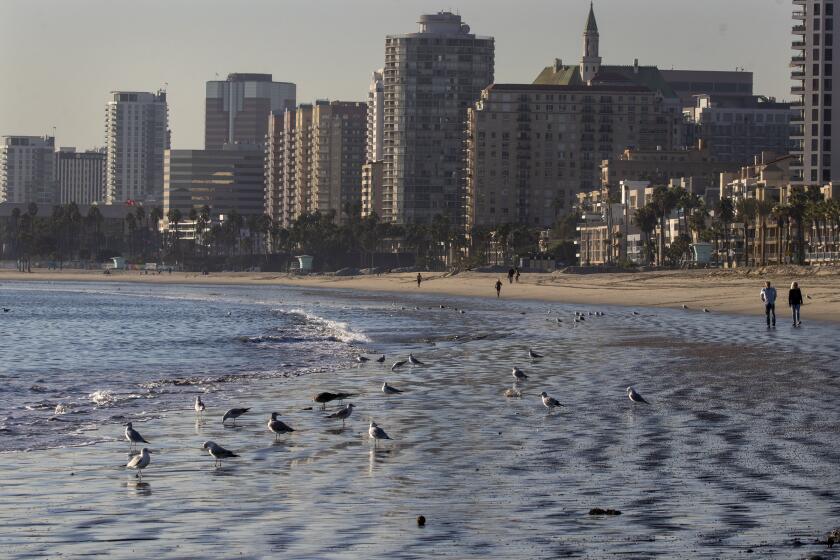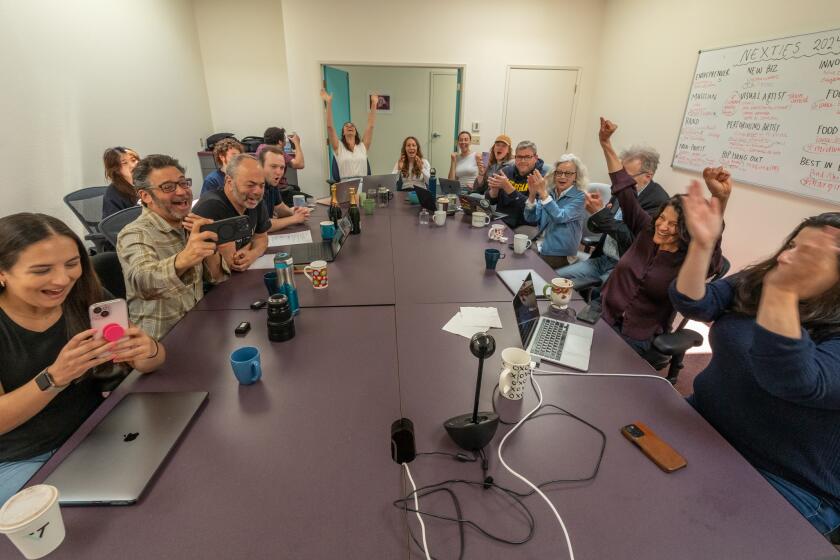Los Angeles may be missing out on millions in fees from developers, audit finds
The city of Los Angeles may have missed out on tens of millions of dollars because it doesn’t have a centralized system to charge developers for improvements the city has to make near their project sites, according to a new audit.
Controller Ron Galperin found Los Angeles took in $4.9 million in development impact fees in fiscal year 2013-14. With $5.3 billion in permitted construction that year, the city could have potentially taken in $15 million to $91 million in such fees, according to the controller’s findings. That conclusion was reached, in part, thanks to a 2011 study that found the city could be entitled to as much as $112 million a year in fees from developers.
The controller’s office also compared L.A. with other major West Coast cities. San Francisco had $3.6 billion in construction and was able to collect $96 million in fees, the report found. In Portland, city officials collected $31 million on $1.5 billion in construction.
State law allows cities to charge a development impact fee to mitigate the effects of commercial, industrial and residential projects. The money goes into one of 17 different accounts and can be used for a variety of improvements, as long as they are directly related to the development, including affordable housing, roads, parks, libraries, sewers and the arts. Calculation of the fees varies based on a project’s valuation, square footage and impact.
“Development impact fees are some of the most important tools the state has given us to make the infrastructure improvements our city so desperately needs,” the controller said in a statement. “These fees should be applied fairly and consistently, and should be spent wisely in the public interest.”
Auditors also found that even when fees were collected, they weren’t always spent. At least $54 million in fees has accumulated, according the audit, $35 million of which is in accounts controlled by the Department of Transportation. LADOT officials told auditors they are hanging onto the money, for now, so it can be used as leverage to help win new grants.
“We continue to partner with neighborhoods, developers, and state agencies to deliver a transportation system that can support the city as it grows. Transparent, responsible management of the fees we collect is essential to this work,” LADOT General Manager Seleta Reynolds said in statement provided to The Times.
The 2011 study that found the city could be getting as much as $112 million a year in fees also urged that the money be spent on affordable housing.
Two weeks ago, Mayor Eric Garcetti cited that study in announcing support for a “linkage fee” that could be added onto new projects in order to pay for more housing. Linkage fees are typically applied to projects that will create a spike in housing demand.
“As we look for new ways to create needed revenue,” Garcetti said in a statement, “it is imperative that we spend every dollar we have already collected. That is why I am instructing our departments to work closely with stakeholders and residents to ensure projects are shovel ready and spending is expedited.”
The controller recommended the Planning Department develop an official process for calculating and collecting the development impact fees.
A representative for the Planning Department said reforming the current system would require action from the Los Angeles City Council.
For more news on California, follow @TheCityMaven.
More to Read
Start your day right
Sign up for Essential California for news, features and recommendations from the L.A. Times and beyond in your inbox six days a week.
You may occasionally receive promotional content from the Los Angeles Times.







